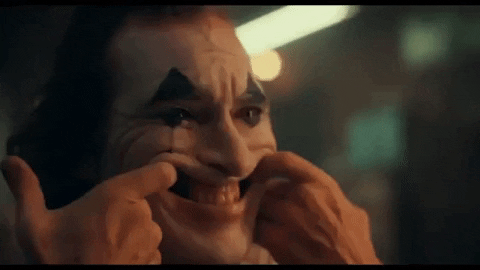The newest cinematic retelling with the most iconic supervillain of all time has arrived. This time, Joker puts the titular character in a more realistic setting over the typical comic book film structure. Instead of high-stakes action and stunts, the film follows Arthur Fleck and his struggle to connect with the world around him, which leads to his violent rampages. Joker inspired a lot of discussions and it may be the most talked-about film of the year—notably in the way it deals with mental illness in a time of heightened violence and mental health awareness.
Is Joker a socially responsible film to make right now, in light of these issues being so prevalent in our culture?

We all have our own relationship with mental health. We either struggle with it ourselves or we care for someone who does. We also know people often use mental illness as an entertainment trick in popular cinema, especially with portrayals of villains. In an often two-dimensional way, popular culture accredits a villain’s crazy and destructive nature to their mental illness, which calls into question the need for more honest and empowering mental health stories. Although Joker paints Fleck in a way where he’s given depth and the audience can sympathize with him, it doesn’t exempt itself from the harmful message that so many other films fall into.
It actually makes it worse.
Joker starts with a somewhat thoughtful look into the life and mind of Fleck, who works as a party clown only to be fired for bringing a gun into a children’s hospital while on the job. In one of the first scenes of the film, he gets mugged on the street and gets beaten to a hard-to-watch point. With the bleak and isolating Gotham as a backdrop, everything about Fleck’s life disheartens you. Joaquin Phoenix plays into the role so well that you feel for everything he goes through; every hurtful experience and depressing thought. Director Todd Phillips executes the story and deep dives into Fleck’s character painfully well, emphasis on painfully.
As the Joker goes into its second half, it becomes more unclear what it stands for.
As the film goes on, Arthur can no longer cling to any semblance of reality. His mental state devolves into violence as he instills chaos in the already broken city. The film contains obvious commentary on the effects toxic masculinity and societal pressures have on a man with deep mental health struggles; something that can make a deeply compelling story if done responsibly. Joker falls short in this regard.

Instead of showcasing the dangers of this kind of toxic, disturbing, violent behavior that plagues America, one can easily read the story as a message of empowerment of violence for the men “left out” of today’s social and political climate. By allowing the audience to sympathize with the “crazy” psychopathic villain, the film inherently endorses his behavior even though the creators didn’t intend that.
With the idea of putting an unstable man struggling with mental health in real-life circumstances comes the extremely hard task of making sure the message possesses crystal clarity—the danger of these ideals and subsequent actions. But, Arthur embodies his mental illness and has his own version of a happy ending because he lets it consume him. He lets it empower him. He lets himself believe that society has a mission against him that afflicts his behavior instead of acknowledging his issues. Fleck falls victim to poor mental health care and lack of support he needs to get better.
That’s the true tragedy of the film, not the narrative that society has an agenda against you.
With mental health being a huge issue in terms of accurate representation in media and proper treatment in our health care system, Joker did not need to be made. While a beautiful looking film with an equally beautiful performance from Joaquin Phoenix, we can do better than glorifying mental illness in a human being whose actions draw dangerous connections to real-life harmful incidents.



















